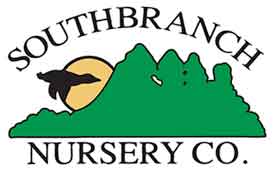From “Dig into the Top 7 Garden Trends for 2019” from Monrovia
by Kate Karam | January 7, 2019
For the past few years we have reported on the shifting consciousness of gardeners toward an embrace of nature, the impact of all things digital in our lives, transparency in how the things that we put into our gardens are made, and recognition of the need for sustainability in a world of finite resources.
In 2019 the biggest trend in the gardening world is letting nature nurture us. We’re increasingly aware of how plants and gardening enhance our lives and connect us to something both ancient and modern–the rhythm of the natural world. This is only the beginning of sea of change in how we view ourselves in relation to the natural world and as gardeners do our part to protect it.
Other trends speak to the growing pressures of too little space to garden and too little time in which to do it. On the brighter side, we see lots of exciting things happening at garden centers, and breeders producing more and more plants that thrive even as the climate is changing. Look for more interest in woodland gardens, bright colors, and the return of all-green gardens. More of us (74% of all households) are taking up trowels, as 68 percent of Americans have either quit or taken a break from social media this year, according to the Pew Research Center. Interesting times!
As you plan for your landscape and garden in 2019, consider these four trends:
ARCHITECTURE RULES
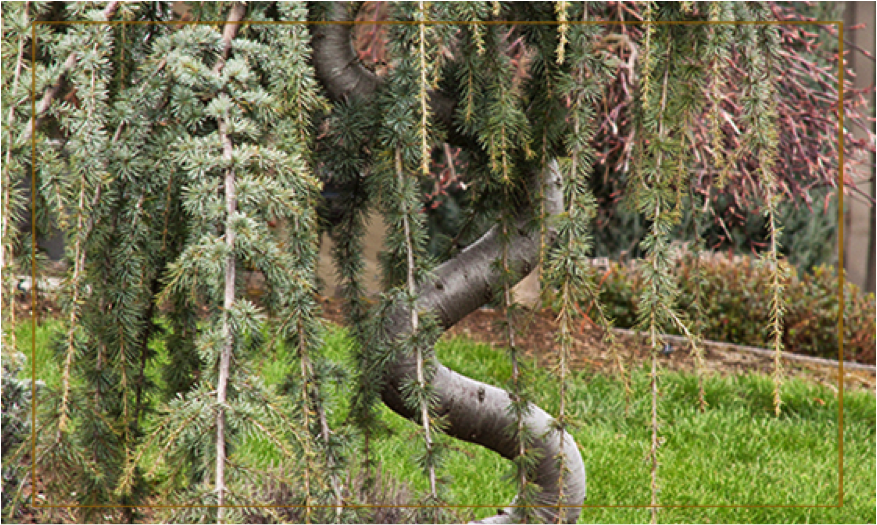
“Designers are using plants with intriguing, often formal, shapes, forms, textures, and branching habits in otherwise naturalistic gardens.”
After decades of informal billowing meadows and cottage borders that studies find are overwhelmingly considered to “have visual appeal and restorative potential”, we’re seeing designers use plants with plenty of intriguing, often formal, shapes, forms, textures, and branching habits in these otherwise naturalistic gardens. The result is a delightful yin-yang sort of effect.
This aesthetic appears to be one of the drivers for increased demand for swirling topiaries, weeping trees, cascading camellias, espaliered fruit trees, layered Japanese maples, and spiky perennials like lupines, salvia, and iris. And, with so many gardening in smaller spaces or often in containers, each and every plant needs ample oomph to make the cut.
DESPERATELY SEEKING SEASON
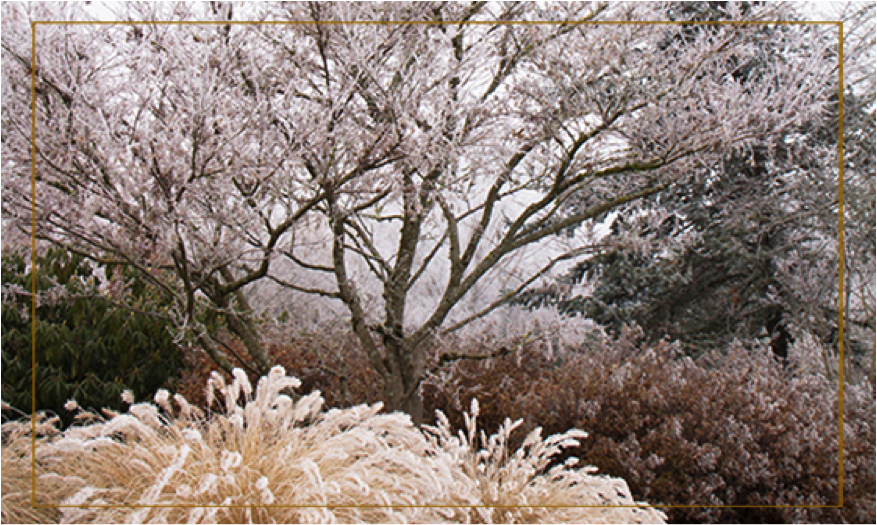
“With seasonal change now less distinct and predictable, gardens that dramatically, graphically evolve over the seasons are becoming even more prized.”
With seasonal change now less distinct and predictable with longer summers and shorter winters, gardens that dramatically, graphically evolve over the seasons are becoming even more prized. For example, plants displaying a stark winter beauty (form, bark, or color) with high contrast to leafy spring have become highly sought after.
The second is a demand curve that’s off the charts for plants that do more for the longer duration of our warm weather (such as hydrangeas, roses, lilacs, and other flowering shrubs that rebloom). These trends may seem contradictory, but both are simply reflections of a changing climate that we addressed in our 2017 trends report.
Not everyone is a “gardener,” but apparently many are finding that a beautiful garden installed and managed by someone is worth every dime. And no matter how they get made, the world is a better place with more gardens.
WORKING OVERTIME
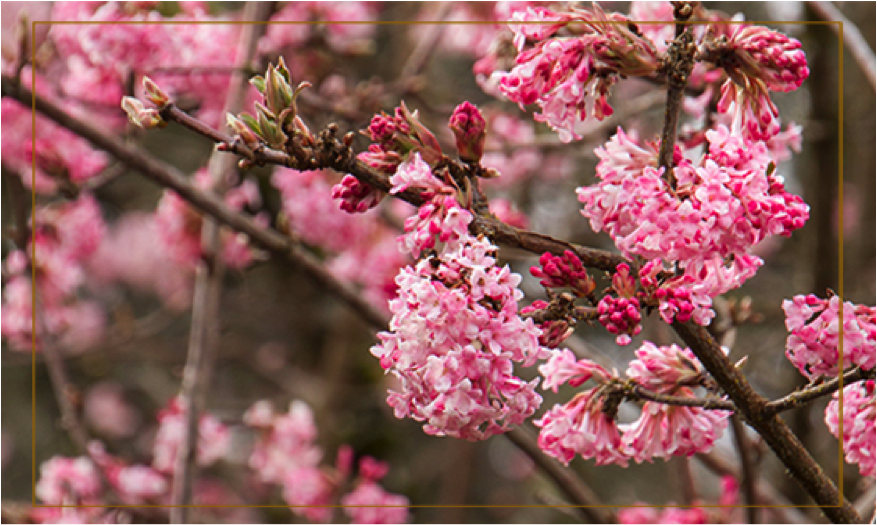
“With space and time at a premium, consumers are snapping up plants that do double or even triple duty in the landscape.”
Used to be that a simple hedge would fit the bill, but now, with home lots getting smaller and with less time for gardening, consumers are snapping up “one and done” plants that do double or even triple duty in the landscape. Also in play here is mindfulness about plants for attracting wildlife, growing food, and creating more overall green space.
This translates to big demand for plants that flower + fruit + have great fall foliage, waterwise + feed birds + provide privacy, native + provide winter interest + fragrant, etc. And then, of course, there are the bragging rights! As plant breeders continue to push the limits of what a plant can do, expect to see more of these multipliers.
INTO THE WOODS
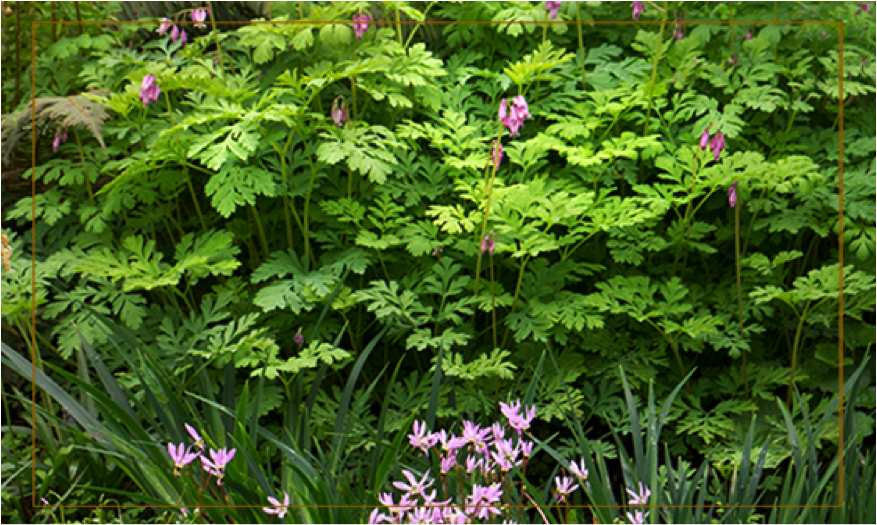
“Woodland gardens bring a welcome sense of organic Zen especially in dense urban areas where they can help to mitigate the effects of pollution.”
Cool, mossy, and damp, small space woodland gardens bring a welcome sense of organic Zen and a respite from digital overload, especially in dense urban areas where they can help to mitigate the effects of pollution. It’s like bringing “forest bathing” to the city with mixes of ferns, mosses, coral bells, Hostas, and Anemones in high contrast, almost unnatural, places for a garden style that’s gaining ground. We’ve tracked a marked increase in consumer demand for all types of woodland plants over the last three years with no signs of slowing down.
